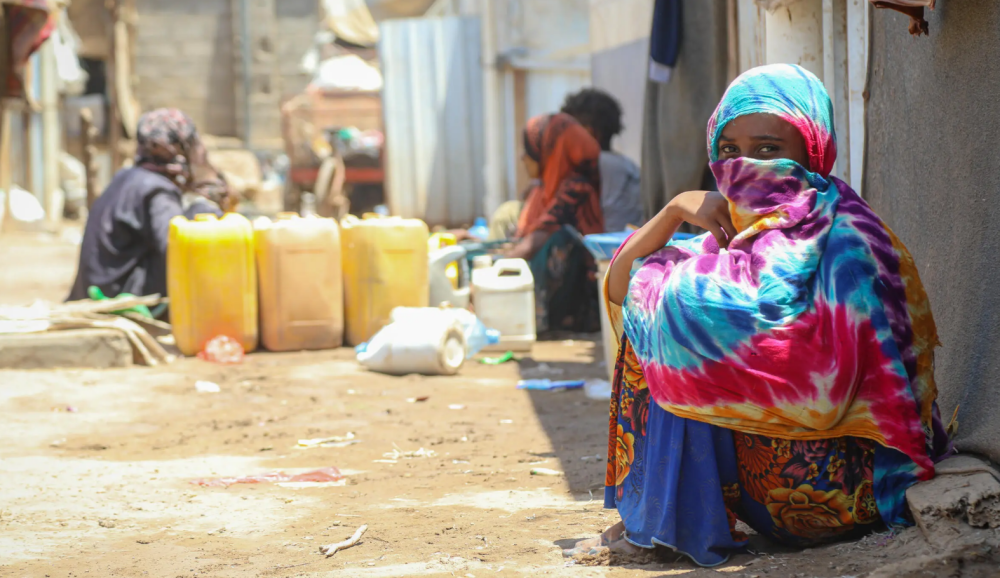At Security Council, UN Deputy Relief Chief calls for sustained aid funding for Yemen


Briefing to the Security Council on the humanitarian situation in Yemen by Joyce Msuya, Assistant Secretary-General for Humanitarian Affairs and Deputy Emergency Relief Coordinator, on behalf of Tom Fletcher, Under-Secretary-General for Humanitarian Affairs and Emergency Relief Coordinator
New York, 12 June 2025
As delivered
Thank you, Madam President.
As ever, I thank Special Envoy Grundberg for his briefing and his tireless endeavors to support a peaceful political solution.
Earlier this month, we marked one year since the Houthi de facto authorities arbitrarily detained dozens of staff from the United Nations, national and international NGOs, civil society organizations and diplomatic missions. These staff joined others held since 2021 and 2023, and more held this year. Twenty-three UN staff remain detained, and I join the Special Envoy and the Secretary-General in calling for their immediate release.
Madam President,
Over the past six months, my colleagues and I have briefed this Council regularly on the devastating impact of the ongoing conflict on communities across Yemen. I would like to start today with some positive developments that merit attention.
First, and as noted by the Special Envoy, a key road between Aden and Sana’a through Ad Dahle was reopened on 29 May after being closed for nearly seven years. This will provide civilian and commercial traffic a more direct and faster route, reducing travel times by six to seven hours between the two cities and improving access to healthcare for communities in a number of governorates.
This development, supported by the authorities and reflective of community sentiment and initiatives, shows that Yemen is not on a fixed, downhill trajectory. With trust and the right tools, there remains hope.
All of us here must rise to meet these opportunities with our own commitment and support.
I am pleased to note, therefore, that the Senior Officers Meeting held in Brussels on 21 May – bringing together senior representatives of Member States, UN agencies, financial institutions, and international and Yemeni NGOs – endeavored to do just that. It was heartening to see both Member States and the humanitarian community engaging on the importance of adequately funding what is now a more prioritized Humanitarian Needs and Response Plan for Yemen. I take this moment to thank the EU and Sweden for co-hosting the meeting, which supported the UN’s decision to prioritize and maintain life-saving humanitarian programmes in the most severely affected areas in all of Yemen. I also express my thanks to the EU, who pledged 80 million euros in humanitarian funding to support critical programming in Yemen.
Madam President,
As this Council knows, over 17 million people – or nearly half of Yemen’s population – are estimated to be acutely hungry. Malnutrition remains a scourge across the country, affecting 1.3 million pregnant and breastfeeding women and 2.3 million children under the age of 5. Without sustained humanitarian support, an estimated 6 million more people could end up in emergency levels of food insecurity.
Meanwhile, the health system is fragile at best. Lack of funding could see a further 771 health centres close and nearly 7 million people denied access to life-saving care.
Women and girls face enormous risks, including gender-based violence.
Madam President,
Despite an operating environment beset by multiple risks and serious challenges, humanitarian operations continue to forge ahead, and humanitarians remain committed and engaged.
For the first three months of this year, a little over 4 million people a month on average received life-saving humanitarian assistance. 4.7 million people received regular emergency food assistance. And nearly 90,000 people received agriculture and fisheries support.
In addition, 262,000 young children and pregnant and breastfeeding women were treated for moderate acute malnutrition; a further 77,000 children were treated for severe acute malnutrition; and more than 51,000 women received assistance from skilled personnel while delivering their babies.
Within a fragile health system, 2.4 million outpatient consultations were provided in IDP and host communities, while the response to cholera continues to build on work undertaken in 2024, including through support to hospitals and diarrhea treatment centres, training of healthcare workers, and distribution of diagnostic kits.
Humanitarians are clearly doing their best, but our response is constrained by the lack of funding – and falls short of what the people of Yemen need.

Aden —A humanitarian convoy from Jordan, consisting of 13 trucks loaded with relief supplies, has arrived in Yemen to support communities aff…

Taiz — Administrative operations at the Taiz Governorate building have resumed following several days of closure caused by an open sit-in sta…

Geneva — The International Committee of the Red Cross (ICRC) has called for $126.882 million to fund its humanitarian operations in Yemen thr…